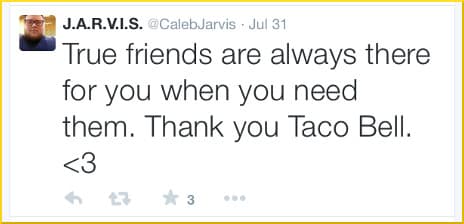 In the study of obesity, the hard sciences count for a lot. Yet every version of hard science has its drawbacks. Scientists can study lab mice under rigorously controlled conditions and make discoveries that might point the way toward ending obesity. Still, no matter how precise the microscopes or how stringent the algorithms, the truth is inescapable. While the subjects might share many characteristics with humans, they are small rodents.
In the study of obesity, the hard sciences count for a lot. Yet every version of hard science has its drawbacks. Scientists can study lab mice under rigorously controlled conditions and make discoveries that might point the way toward ending obesity. Still, no matter how precise the microscopes or how stringent the algorithms, the truth is inescapable. While the subjects might share many characteristics with humans, they are small rodents.
The soft sciences also have an enormous role in understanding the obesity epidemic. The marketing of fast food, for example, is a frankly vicious competition between techniques of mind control. One approach to improved general health involves teaching kids how to look at advertising and recognize its manipulative illusions.
A popular and effective journalistic convention is the close biographical study of an individual. Sometimes that notion is expanded, as in the film Bite Size, which brought together the stories of four teenagers. Today, Childhood Obesity News looks at an example of the more basic format—one reporter, one subject, and a story in print. Louise Knott Ahern interviewed 17-year-old Caleb Jarvis about being an obese youth.
The writer begins by admitting that every obese kid is unique, having arrived at her or his predicament by a different path. Furthermore, her subject “isn’t interested in being anyone’s poster child.” Talking about his obesity bothers Caleb so much that he asks for a meeting at school rather than at home. Of course his parents are well aware of his physical condition, but discussing it with a reporter in their presence seems impossibly embarrassing.
The Early Years of an Obese Youth
The story relates how Caleb started to be conscious of his obesity in 5th grade, when shame set in. In middle school his personality alternated between reticence and boldness, and in the bold phases he became something of a class clown, to divert attention from his physical condition. At the same time, he resented feeling like a stereotype. Ahern quoted him:
When you’re the fat kid, he says, you’re supposed to fit into a role. You’re supposed to be either the bully or the clown, either mean or jolly…I don’t want to be defined by this.
In high school, Caleb found satisfaction in playing football, where size is an advantage. He discovered a talent for singing, and performed in the school’s theatrical productions, where he experienced another kind of belonging. He found himself playing typical fatlogic mind games, like swearing that he’d never let himself top 300 pounds. Then, when that happened, he mentally moved the disaster point to 400. Among addicts, this is a familiar pattern. An alcoholic reasons that, as long as he doesn’t pour a drink before 5:00 PM, everything is okay. Gradually, the marker is moved back, until he decides that the real red flag is drinking before noon.
Recent Updates to Caleb’s Obesity Story
This story, published four years ago, inspires curiosity about what its Caleb Jarvis is doing these days. The answer is that he is going to college. He is easily found on Twitter, where his current weight is not published, but he still looks big. His contributions range from self-reflective to flippant, with occasional evidence of a sly and irreverent sense of humor. One of the most recent tweets notes:
I’m living with three girls this year so I oughta be able to get somebody to make me a sandwich anytime I want one.
Another tweet wishes someone would come over and wait for a UPS delivery so he can go out and find food. Another promises to love his future child unconditionally—except, “I will not have a sissy vegetarian living in my house.” Originating from a different mood, one communication asks, “Why am I not striving to be the best version of myself every single day?” This one is heartening:
GIRLS: If you feel pretty with make up on, wear it. If you feel pretty without it, don’t wear it. Don’t let other women tell you what to do.
This tweet reflects the sensibility of someone who knows what it’s like to be stereotyped, and does not wish to subject anyone else to that fate; someone who knows how it feels to be a different person inside than outward appearance would indicate. Childhood Obesity News congratulates Caleb for the courage he showed as a teenager in making his story public, and wishes him health and happiness.
Your responses and feedback are welcome!
Source: “’I don’t want to be defined by this’
LansingStateJournal.com, 09/24/11
Image by Caleb Jarvis

 FAQs and Media Requests:
FAQs and Media Requests: 












One Response
How do you think Caleb feels about the access to delivery food services these days? You should follow up and ask!